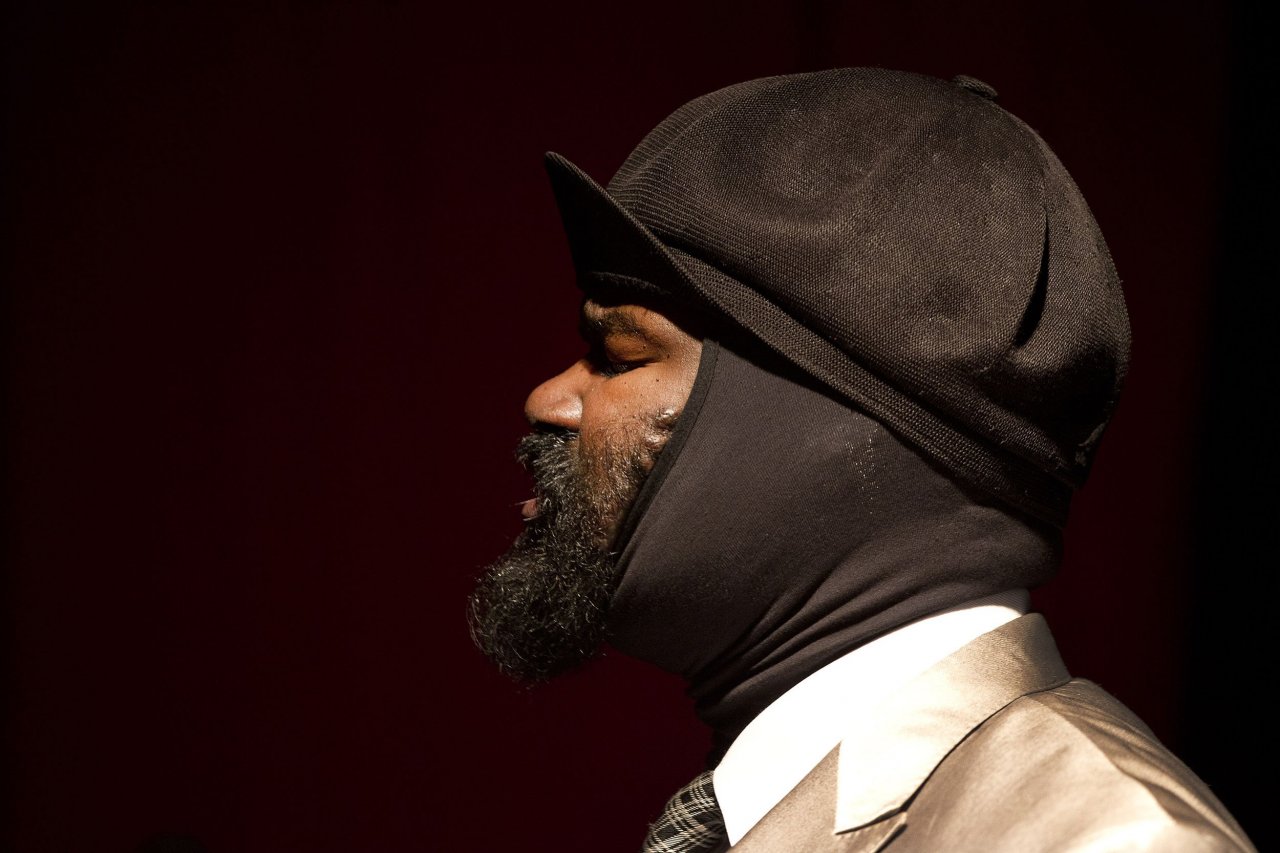
Gregory Porter croons with the jazz gusto of a bygone era, but all potential collaborators take note: He is very much alive. "Howard [Lawrence], one of the brothers of Disclosure, heard my voice on the jazz radio station in the U.K., but he thought it was a very old song," recalls Porter, 43, with a laugh, calling Newsweek from his hometown of Bakersfield, California. "He thought it was maybe something he could potentially sample."
A bit of sleuthing led Lawrence to Porter, a Brooklyn resident for the past decade, and the producer invited him to co-write a song. The result was a pensive yet joyous jazz-soul ballad, one that hewed close to Porter's Grammy-winning solo catalog. But the efforts didn't end there; Lawrence and brother Guy, who comprise the über-trendy British dance duo Disclosure, rewound the song into a sprightly club track, "Holding On," that reached No. 1 on the U.S. dance charts as the lead single of their second album, September's Caracal.
The track is Porter's boldest step yet in his unlikely evolution from jazz traditionalist to club-kid muse. (It's also enticing other marquee names; both pop-soul savant Sam Smith and iconic rap group De La Soul recently approached him to collaborate on new material.) Porter cuts a strange figure for a jazzman; his resonant, soulful baritone and youthful presence have been embraced by electro-pop DJs, who have poured hundreds of remixes of his tracks onto YouTube and SoundCloud in the past five years. At the same time, he's still embraced by traditional bop audiences, even collecting a Grammy for best jazz vocal album for 2013's Liquid Spirit.
While the sampling of jazz artists is a tradition in dance circles—artists from Massive Attack to DJ Shadow and Flying Lotus—cross-genre, honest-to-god duets aren't forged quite as often. Porter acknowledges that not many contemporary jazz artists have been as embraced by the electro set. "I don't think it happens often, and it's been an honor. It surprised me a bit. The idea to cross genres, to cross age and race, is a difficult thing to do musically," he says. "But I think you can be as soulful and evocative as you want to be in dance music. What matters is that the message you're singing doesn't change. I don't mind that backbeat, not at all."
As the son of a minister, Porter grew up singing gospel in church. The largely rural community of Bakersfield provided a complicated backdrop. "On one hand, we would walk down the alley and fruit was dropping from the trees, and I had a lot of friends. But at the same time, there were really strange and violent racial experiences," he says. "My brother, walking home from work late at night, was shot in the back by a couple of racists. They tried to cut down [our] tree house that was in the front yard. It was difficult and strange, but at the same time, as a kid, you're just resilient."
He found a release in athletics, entering San Diego State University on a football scholarship. However, a few months into his freshman year, he dislocated a shoulder and tore his rotator cuff, injuries that would pull him from the field permanently. "When you're an athlete, it's your identity in a way—a stamp on your forehead," he says. "And suddenly, I needed a new identity." He tapped into his early musical inclinations by joining jam sessions around the city. These eventually led to a role in the musical It Ain't Nothin' but the Blues at the San Diego Repertory Theatre, which then traveled nationally and even enjoyed a stint on Broadway.
Emboldened, Porter wrote his own musical in 2004, Nat King Cole & Me, a tribute to the favorite artist of his childhood. "His music kind of washed over me like it was fatherly advice; my father didn't raise me. I listened to the music in this wide-open, emotional way," Porter says. He then moved to New York and became a fixture in the jazz community of Harlem. Motema Records called in 2008, and he cut two albums with the label, 2010's Water and 2012's Be Good (neither of which charted in the U.S.), before signing with Blue Note Records. His debut release for Blue Note, Liquid Spirit, not only won the Grammy but cracked the Top 10 of the U.K. album charts, a rare feat for a jazz release, even one by "a jazz singer of thrilling presence," as The New York Times praised him. That year, he also scored his highest-profile New York booking to date: a role in the limited-run reprise of Blood on the Fields, Wynton Marsalis's Pulitzer Prize–winning 1997 jazz oratorio about a Southern slave couple's journey to freedom.
Marsalis tells Newsweek that Porter was a natural for the lead part of Juba, a sage of preternatural intensity. "He has a depth of soul and feeling in his voice, and command of a kind of a baritone sound that is very rare," says Marsalis, 53. "His voice is rich, and it communicates a soul that is uncommon."
As he writes his fourth jazz-soul album, Porter is gravitating toward topical themes. "I'm going to harvest my experiences and my feelings about what's going on in the country, the unrest and some of the violence that's happened," he says. "I'm thinking of themes of mutual respect in all ways, not just the police: young person to young person, young person to old person, neighbor to neighbor. Everybody has to be considerate and thoughtful about life." It's a fitting thought for an artist who, somehow, bridged the immeasurable taste gap between millennial ravers and highfalutin jazz icons using only his voice.














